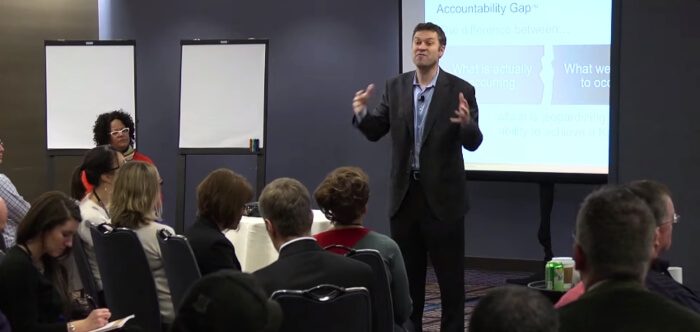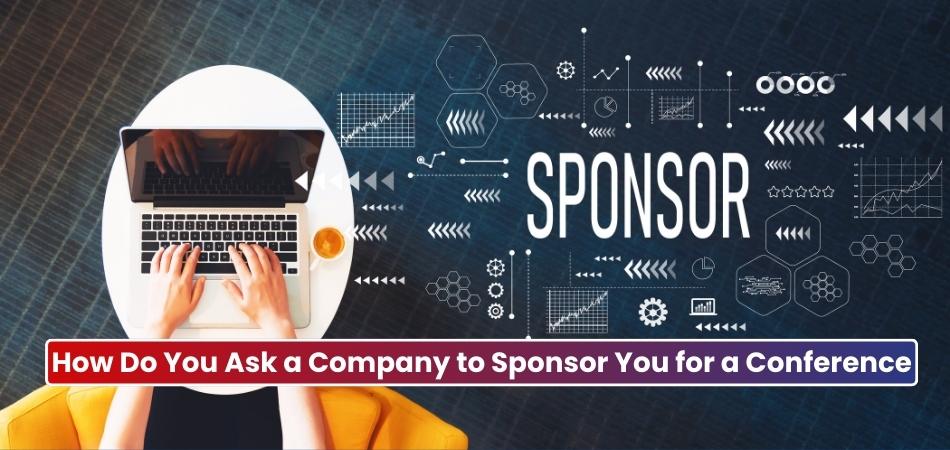A conference sponsor can increase the event’s reach and impact by forming a strategic partnership. This collaboration not only strengthens the conference but also aligns it with the sponsor’s goals, creating a mutually beneficial relationship. If you’re wondering, “How do you ask a company to sponsor you for a conference?” the process involves several key steps.
To effectively ask a company for sponsorship, begin by researching potential sponsors that align with your conference’s theme and audience. Prepare a detailed proposal that highlights the sponsor’s benefits, including brand visibility and engagement opportunities. Following up with personalized communication shows your commitment and answers any doubts they may have.
Are you curious about conference sponsorship? Keep reading as this article provides all the essential information you need to make your sponsorship request successful and impactful.
Significance of a Conference
The purpose of conferences is to promote professional growth and networking opportunities in a variety of fields. They provide a platform for sharing knowledge, discussing industry trends, and showcasing innovations. Attendees gain insights that can be applied to their work, helping them develop new skills and a deeper understanding of their industry.
Moreover, conferences offer an excellent chance for professionals to connect with peers and industry leaders. These interactions often lead to valuable collaborations and long-term partnerships, benefiting both individual careers and organizational growth. Many professionals also explore international conferences to gain a broader perspective and engage with experts worldwide. Events like conferences in Canada bring together specialists from various industries, creating valuable opportunities for discussion and learning.
When organizing a conference, asking companies for conference sponsorship can significantly enhance the event’s quality and reach. Financial support helps cover costs, improves resources, and adds value. Sponsors also benefit from increased visibility, making it a mutually beneficial arrangement that contributes to a more impactful conference experience.
Benefits of Getting Sponsored for Attending a Conference
Acquiring sponsorship not only eases financial burdens but also brings a multitude of benefits. From improved networking opportunities to increased brand visibility, the advantages are substantial for both the attendee and the sponsoring entity.
Financial Support
Sponsorships primarily alleviate the financial load of attending conferences. This support can cover registration fees, travel expenses, and accommodation, making it feasible for attendees to participate. Such financial assistance is particularly valuable for individuals from smaller organizations or students.
Networking Opportunities
Sponsors often provide access to exclusive events or VIP areas at the conference. These settings are ripe for networking, allowing attendees to connect with industry leaders and potential collaborators. It’s an environment where meaningful professional relationships can blossom.
Professional Development
Attending conferences promotes learning and professional growth. With sponsorship, attendees can access workshops, keynotes, and panels that might otherwise be out of reach. This exposure to new ideas and skills is invaluable for career advancement.
 Increased Visibility
Increased Visibility
Being sponsored can increase an individual’s or organization’s visibility within their industry. It signals a level of prestige and credibility, often leading to increased recognition among peers. This heightened profile can open doors to future opportunities and collaborations.
A sponsorship is more than just financial support; it is an investment in professional growth, networking, and visibility. For those looking to expand their reach and impact in their field, exploring sponsorship opportunities is worthwhile. The benefits extend far beyond the conference itself, influencing long-term career paths and opportunities.
How Do You Ask a Company to Sponsor You for A Conference?
Securing sponsorship for a conference is crucial for its success and can be a rewarding endeavor when approached correctly. The process begins with understanding the needs of potential sponsors and presenting a proposal that highlights the benefits of supporting your event. Here’s a step-by-step guide on how to effectively ask a company to sponsor your conference.
1. Research Potential Sponsors
Identify companies whose goals align with your conference’s theme and audience. Look for those with a history of sponsoring similar events or showing interest in your industry. Targeting the right sponsors ensures that your proposal reaches those who will find value in the sponsorship opportunity.
2. Prepare a Detailed Proposal
Make a detailed proposal that includes details about the conference, audience demographics, and sponsorship benefits. Clearly explain what the sponsor will receive in return, such as brand exposure and engagement opportunities. This proposal serves as a key tool in persuading companies to support your event.
3. Write an Appealing Sponsorship Letter
In the process of writing a conference sponsorship letter, make sure to personalize it for the specific company. Highlight the advantages of sponsoring your event, such as increased visibility and potential media coverage. Be clear and precise about your request and how their support will be mutually beneficial.
4. Offer Sponsorship Levels
Provide different levels of sponsorship to accommodate various budgets. Each level should offer distinct benefits and recognition opportunities, such as logo placement or speaking slots. Clearly define what each level includes to help potential sponsors choose the option that best suits their goals.
5. Highlight Benefits
Show how sponsoring your conference will benefit both the sponsor and your event. Discuss the publicity and promotional opportunities available to the sponsor, such as targeted audience engagement and brand visibility. Demonstrating these shared benefits helps make your proposal more appealing.
6. Follow Up After Submission
Once you’ve sent your proposal and letter, follow up with a call or email to discuss the opportunity further. Address any questions or concerns a potential sponsor may have. This follow-up confirms your interest and keeps the conversation moving towards a positive outcome.
7. Express Appreciation and Build Relationships
Thank the sponsor for their consideration, regardless of their decision. Maintaining positive relationships with both current and potential sponsors can lead to future opportunities. Expressing gratitude helps build a network of supportive partners for upcoming events.
Asking a company to sponsor your conference involves a clear proposal and a well-written sponsorship letter. By following these steps, you can improve your chances of securing valuable support and ensuring the success of your event.
Types of Conferences You Can Attend
Conferences are full of opportunities, each type suited to specific interests and professional needs. From industry-specific gatherings to interdisciplinary forums, these events vary widely in focus and format. Understanding the different types of conferences available can help you choose the best one for your career or business goals.
Academic Conferences
Primarily focusing on research and scholarly discussions, academic conferences are a cornerstone for educators, researchers, and students. These events are ideal for presenting papers, discussing theories, and networking with academicians. They often highlight the latest research findings and evolving trends in various academic disciplines.
Industry Conferences
Focused on professionals within specific sectors, industry conferences delve into market trends, innovations, and best practices. They offer a platform for networking with industry peers, discussing challenges, and exploring business opportunities. These gatherings are important for staying current with industry advancements and building professional networks.
Trade Shows
Combining exhibition and conference elements, trade shows are essential for businesses to showcase their products and services. These events attract a wide range of attendees, from potential customers to investors, offering unique marketing and networking opportunities. They are particularly beneficial for businesses looking to expand their market reach and visibility.
Virtual Conferences
As a modern platform for knowledge sharing, virtual conferences provide a digital platform without geographical limitations. These events offer the flexibility of remote participation, making them accessible to a broader audience. They are especially relevant in today’s increasingly digital and connected world.
Each type of conference offers unique benefits and opportunities. Whether you’re looking to deepen your academic understanding, expand your professional network, or gain hands-on experience, there’s a conference out there that fits your needs. Identifying the right type can significantly enhance your personal and professional growth.
Tips to Find the Right Conference for You to Attend
Choosing the right conference to attend is crucial for maximizing your professional development and networking opportunities. With countless events available, it’s important to select one that aligns with your career goals and interests. Here are some key tips to help you find a conference that’s the perfect fit for you:
- Identify Your Goals: Consider what you aim to achieve by attending a conference. Whether it’s gaining knowledge, networking, or showcasing work, your goals will guide your choice.
- Research the Theme: Look for conferences with themes that align with your field of interest or expertise. Relevant content is key to a valuable experience.
- Consider the Speakers: Investigate the speakers and their backgrounds. Renowned speakers often indicate an excellent, informative conference.
- Analyze the Audience: Determine who the typical attendees are. Networking with like-minded professionals can be a major benefit.
- Check the Location: Review the conference location for ease of access and practicality. A central location can enhance your overall experience.
- Look at Past Events: Research the conference’s history and past events. Positive reviews and successful past events usually indicate a worthwhile conference.
- Analyze the Cost: Factor in registration fees, travel, and hotel costs. Ensure the conference offers value for the money you’ll spend.
- Ask for Recommendations: Talk to peers or mentors for their recommendations. Personal referrals can be a reliable guide to choosing the right conference.
Selecting the right conference involves careful consideration of your professional goals, the event’s relevance to your field, the quality of content and speakers, and practical aspects like location and cost. By thoroughly analyzing these factors, you can raise your conference experience which is beneficial for your career.
Frequently Asked Questions
Here are some frequently asked questions regarding how to request company sponsorship for a conference. These answers provide insights and tips to help you effectively approach potential sponsors and secure the support you need.
How Do You Address Potential Sponsor Concerns?
By being open and active, you can address potential concerns. Provide detailed information about the conference’s audience, expected outcomes, and how their sponsorship will be utilized. Offer to discuss any specific needs or questions they might have to ensure their comfort with the sponsorship decision.
How Can You Ensure a Successful Conference with Sponsorships?
Your conference’s success depends on incorporating sponsorships into your planning. By securing sponsorship, you can improve event quality, attract more attendees, and provide better resources. When you get international conference sponsorship, it also boosts the event’s reputation and offers global exposure, making it more attractive to both attendees and potential future sponsors.
How Can You Make Your Sponsorship Request Stand Out?
Focus on customizing your approach for each company to make your request stand out. Demonstrate how sponsoring your conference aligns with their business objectives and values. Use data and examples to show the potential impact, and clearly explain the benefits they will receive from their support.
What Should You Include in a Sponsorship Proposal?
A sponsorship proposal should clearly outline the conference details, including the event’s purpose, audience demographics, and the benefits for the sponsor. Highlight what the sponsor will receive in return, such as brand visibility and engagement opportunities. Ensure the proposal is tailored to the sponsor’s interests and goals.
What Follow-Up Actions Are Important After Sending a Sponsorship Request?
After sending your sponsorship request, follow up with a personalized email or call to discuss the proposal further. Address any questions or concerns and explain the value of their sponsorship. Consistent follow-ups demonstrate your commitment and keep the conversation moving toward a positive decision.
Final Considerations
A successful sponsorship campaign requires thorough research, a well-written proposal, and clear communication of mutual benefits. By understanding the needs of potential sponsors and aligning them with your event goals, you can effectively persuade companies to support your conference. Following these steps ensures you’re prepared when answering the question, “How do you ask a company to sponsor you for a conference?”
As you move forward with your sponsorship efforts, remember to personalize your approach, offer flexible sponsorship levels, and maintain open communication with potential sponsors. These practices will enhance your chances of success. Best wishes for securing the support needed to make your conference a success!








